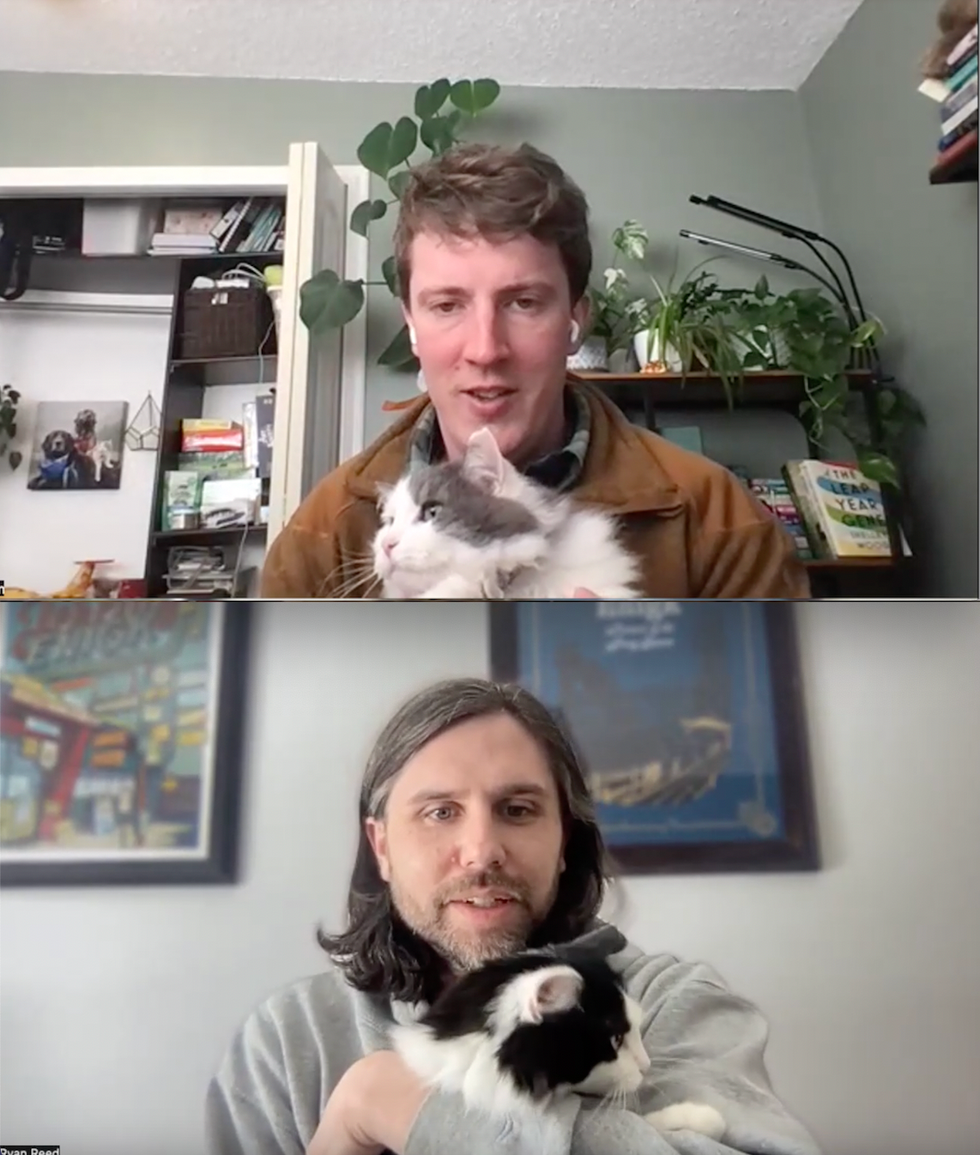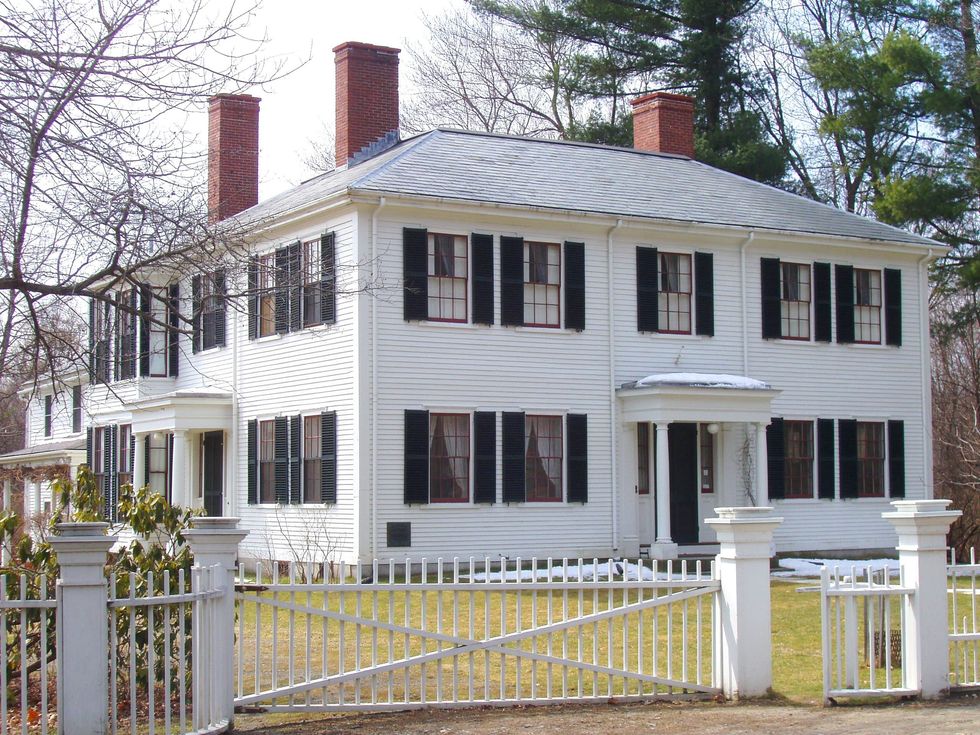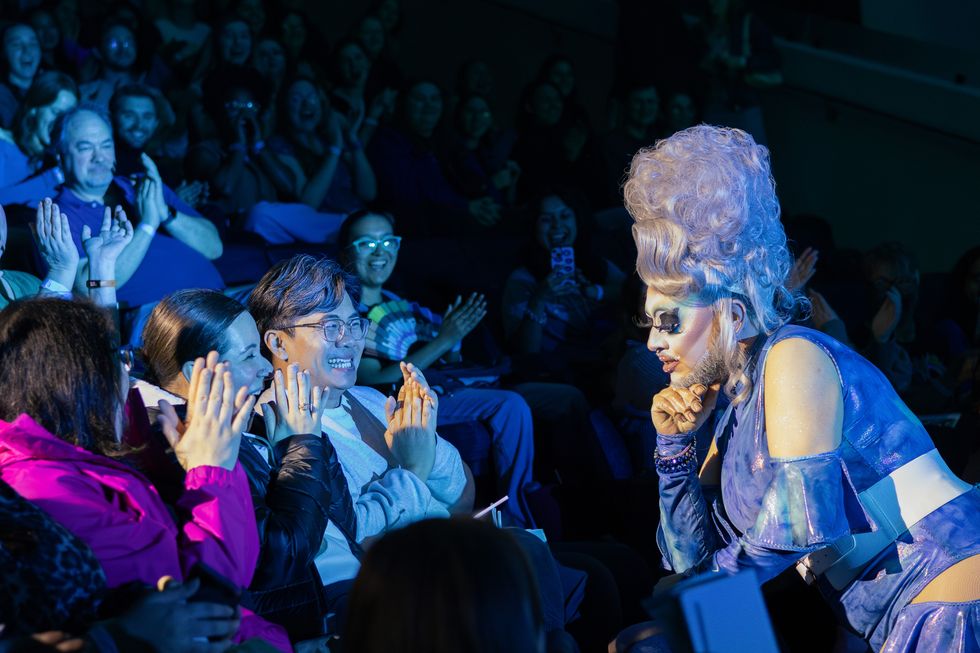Legendary television and film producer and activist Norman Lear knows a thing or two about laughter.
He's been helping generations of Americans split sides for decades via his smart, politically minded, and hilarious hit shows, including "All in the Family," "The Jeffersons," "Maude," and “One Day at a Time” — a beloved Cuban-American version of which has just started production on its third season at Netflix.
But Lear’s greatest legacy might perhaps be lesser known.
The 95-year-old World War II vet has seen it all: cancer, divorce, grief, and war. As a kid, he even saw his father sent to prison for fraud.
And through the ups and downs, he's taught his six children the gifts of resilience and longevity through art and laughter. It seems they've taken those lessons to heart in their own creative ways.
“The only thing I like better than talking about laughter is laughing,” Lear said at the recent Art Rx Symposium 2018 at the Keck School of Medicine at the University of Southern California. He spoke about the joys of working with a laundry list of talents: Martha Raye, Dean Martin, Jerry Lewis, George Gobel, Carroll O’Connor, Sherman Hemsley, Jean Stapleton, and Bea Arthur. Throughout his more than 50 years of working in television and film, he has worked with many “who have sent tears of laughter down my cheeks.”
The forum was the first of its kind, inspired by and in celebration of the creativity, compassion, and laughter that the late actor Robin Williams delivered to the world through his acting, comedy, and general enthusiasm.
“Robin Williams could make me laugh in nooks and crannies of my body I would otherwise have never known existed,” Lear said of his late friend. “With Robin came a truth-seeking madness that was new and unique on the planet … and somehow I knew laughter was adding time to my life.”
Brianna Lear, one of Lear’s twin daughters, was part of the team of graduate students at the USC’s Suzanne Dworak-Peck School of Social Work that put on the inaugural event. The event was founded by graduate student Sydney Siegel, which was inspired by Williams in life rather than in death, though acknowledging and bringing awareness to his inner struggles was one of the goals of the symposium. The beloved actor died by suicide at the age of 63 in 2014, after experiencing Parkinson’s disease and undiagnosed Lewy body dementia.
Brianna spoke with GOOD about her father's ongoing positive influence on her life and others.
On the importance of humor in the family
“In my family — we always play charades. We always make sure to be silly and make jokes. I think that kind of creativity and humor is a huge part of our time as a family.
Growing up, we always saw plays and musical theater. Part of our time together which is, you know, maybe healthy and unhealthy [laughs], is we watch a lot of movies together. I definitely grew up as a child of the industry. My father and my Mom both really wanted me to pursue a career in acting and singing most of my life. That's what I thought I wanted to pursue.
And then I ultimately shifted gears, but it's still something that's really important to me. I am constantly reminded of the power of music and art in my own self-care. It's something I definitely miss. And I want to find ways of incorporating it more.
And so I think part of my motivation is definitely ensuring that everyone has access to the time and an opportunity to engage in art — especially children — because for me it's been my saving grace. For me, it's been my method of healing.”
On her father as a role model for the healing power of art
“I wrote my undergraduate thesis on music and emotion and the power of music in healing, and so immediately going into this program, I knew that I wanted to get involved in the arts and healing in some capacity. So I contacted Sydney [about Art Rx] and interviewed with her. Through discussing the symposium, I brought up the fact that my father has worked in the creative field and has been so prolific, and I think is such a great role model for the power of the arts in healing and health.
I know he believes that laughter is so important to health.”
On her father’s wisdom
“He has a few different phrases that he goes back and forth between.
One is ‘over and next’ — when something's over, move on to the next thing. My interpretation of that is to not dwell on past failures and to look forward. But he always talks about the space in between — living in the moment.
He always talks about the human condition. He brings it up in a lot of different contexts. He talks about how it’s hard, but we all have it, and the ability to recuperate and not internalize things too much.
I think he practices a lot of mindfulness. I don't know if he would use that word, but when you talk with him (for the most part), you can tell he’s listening [laughs]. I mean, he gets so many emails and phone calls. But for him, family is everything. I have no doubt in my mind that he would skip the Oscars or some really important event to spend time with family.”















 This doggo has some concerns. Photo by
This doggo has some concerns. Photo by  Ready to eat.Photo by
Ready to eat.Photo by 

 Let us all bow before Gary, the Internet's most adventurous feline. Photo credit: James Eastham
Let us all bow before Gary, the Internet's most adventurous feline. Photo credit: James Eastham Gary the Cat enjoys some paddling. Photo credit: James Eastham
Gary the Cat enjoys some paddling. Photo credit: James Eastham James and Gary chat with Ryan Reed and Tony Photo credit: Ryan Reed
James and Gary chat with Ryan Reed and Tony Photo credit: Ryan Reed


 Rock deterioration has damaged some of the inscriptions, but they remain visible. Renan Rodrigues Chandu and Pedro Arcanjo José Feitosa, and the Casa Grande boys
Rock deterioration has damaged some of the inscriptions, but they remain visible. Renan Rodrigues Chandu and Pedro Arcanjo José Feitosa, and the Casa Grande boys The Serrote do Letreiro site continues to provide rich insights into ancient life.
The Serrote do Letreiro site continues to provide rich insights into ancient life.

 File:Ralph Waldo Emerson House (Concord, MA).JPG - Wikimedia Commons
commons.wikimedia.org
File:Ralph Waldo Emerson House (Concord, MA).JPG - Wikimedia Commons
commons.wikimedia.org

 The contestants and hosts of Draggieland 2025Faith Cooper
The contestants and hosts of Draggieland 2025Faith Cooper Dulce Gabbana performs at Draggieland 2025.Faith Cooper
Dulce Gabbana performs at Draggieland 2025.Faith Cooper Melaka Mystika, guest host of Texas A&M's Draggieland, entertains the crowd
Faith Cooper
Melaka Mystika, guest host of Texas A&M's Draggieland, entertains the crowd
Faith Cooper